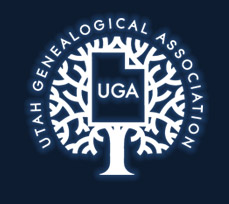Beyond the Records: Mining Historical Resources to Write the Story of Your Ancestors (Webinars)
Presented by Amy Rose Ward on 21 Nov 2024.
Register Now
This presentation will explore the process of putting people in a historical context by looking beyond genealogical records.
 Amy Rose Ward received her BS degree in History from Utah State University. In 2022 she completed her Masters in Genealogical Studies from University of Strathclyde. She is currently working to become accredited in the New England region through ICAPGEN. She has worked in the FamilySearch library in Salt Lake City as a research specialist, and has presented several webinars about FamilySearch and other topics. Amy enjoys doing client research, and is especially passionate about writing family narratives. She serves the Utah Genealogical Association as 1st Vice President and co-chair of the First Families of Utah committee. She also is the president and founder of her community’s orchestra program in Morgan, Utah where she plays violin and viola. She loves hiking, biking, and skiing in the beautiful Utah mountains. Amy and her husband, Jeff, have five children.
Amy Rose Ward received her BS degree in History from Utah State University. In 2022 she completed her Masters in Genealogical Studies from University of Strathclyde. She is currently working to become accredited in the New England region through ICAPGEN. She has worked in the FamilySearch library in Salt Lake City as a research specialist, and has presented several webinars about FamilySearch and other topics. Amy enjoys doing client research, and is especially passionate about writing family narratives. She serves the Utah Genealogical Association as 1st Vice President and co-chair of the First Families of Utah committee. She also is the president and founder of her community’s orchestra program in Morgan, Utah where she plays violin and viola. She loves hiking, biking, and skiing in the beautiful Utah mountains. Amy and her husband, Jeff, have five children.



